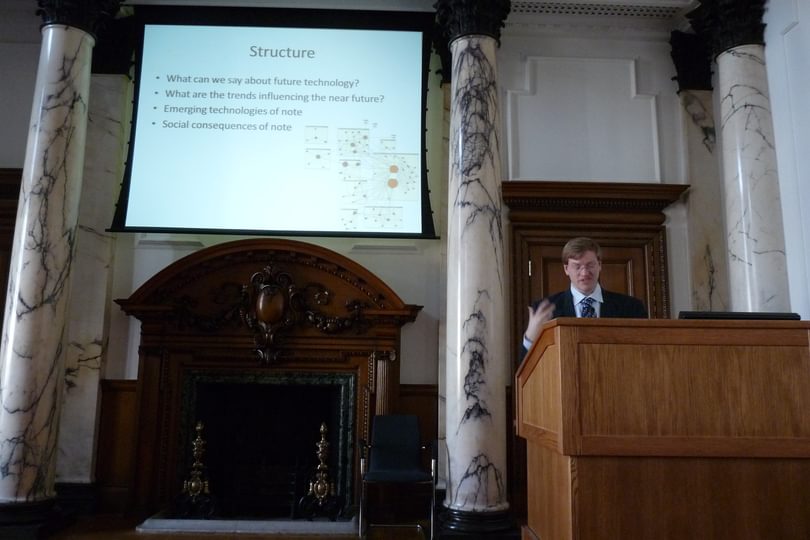
This talk is co-hosted by the Oxford Martin School, University College & Oxford Institute of Population Ageing, to celebrate their 20th Anniversary and is a continuation of the Trinity Term Series Science and Populism: from evidence to narrative
National governments may have less immediate power than they used to but, in matters large and small, someone somewhere often has to make a decision that will affect many lives. The Ministers making those decisions are human too, and what we know about how science works in government can tell us a lot about its place in wider public debates. Making decisions today, based on evidence from the past, in order to change the future: what could possibly go wrong?
About the speaker
Dr Claire Craig is Director of Science Policy at the Royal Society, the independent scientific academy of the UK and the Commonwealth, dedicated to promoting excellence in science. The Royal Society is a self-governing Fellowship of many of the world’s most distinguished scientists drawn from all areas of science, engineering and medicine. Its role is to work with the Society’s Fellows and other experts to develop and promote independent, expert and timely advice to UK, European and international decision makers in matters of science policy. The Science Policy Centre’s work covers policy for science, science policy and education policy.
Previously Claire led the Government Office for Science which supports the Government’s Chief Scientific Advisor (GCSA), Sir Mark Walport. The GCSA provides science advice to the Prime Minister and the Cabinet; and to build capacity across government to provide and use science evidence. Claire originally joined the Civil Service to run Foresight, a programme of science-based strategic futures projects, covering topics from flood risk to cognitive enhancement. While at Foresight, she was awarded a CBE for her work, and became a Faculty member of the World Economic Forum at Davos.
Claire has worked on strategy and science in decision-making in the public, private and not-for-profit sectors. Her career includes periods at McKinsey & Co and the Confederation of British Industry. She helped launch a hands-on science centre in her home town (Bristol), and has held non-executive roles in a variety of research and teaching institutions including the University of the West of England, Newnham College, Cambridge and King’s College, London. She trained originally as a geophysicist.